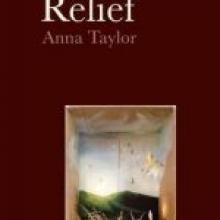
RELIEF
Anna Taylor
Victoria University Press, $29.99, pbk
Another accomplished first book of fiction from a young (born 1982) graduate of Bill Manhire's MA in creative writing class, this collection of short stories is developed from the manuscript that won the 2006 Adam Prize for creative writing at Victoria University.
The Manhire-Victoria University Press-Institute of Modern Letters-Sport "axis" has sometimes been resented as the McManhire system for the commodification of literature or as a Wellington in-group conspiracy.
But maybe a more ordinarily explicable process is going on: select a group of talented people, expose them to good teaching and to each other, have a press committed to New Zealand writing, and some good New Zealand literary publications are likely to emerge.
And this book is one of them.
One of the things that can be taught and learned, formally or informally, is narrative technique, just as one can be taught the techniques of playing the piano.
However she learned it, and I assume the creative writing course at least sharpened her skills, Anna Taylor in these stories has the command of technique to make the most of interesting story material, most of it to do with family relationships, from the ordinary to the extreme.
Primarily through her control of narrative point of view, the arrangement of narrative sequence, and the decision as to where to stop the story, she makes all 11 stories in this volume work.
The title story shows how command of technique releases the potentiality of the narrative material.
A middle-aged man is accused of having abused his stepdaughter eight years before, while his sister believes in his innocence.
Taylor's alternation of the third-person point of view between brother and sister, restricting herself in either case to what was in the mind of each at the moment, allows the reader to surmise, from the brother's memories both of his response to a car accident in the near past and of his failure to confess something bad he had done as a child, that he actually had abused his stepdaughter.
The title is ironic, for while the sister is relieved when the charges are dropped, the brother's only relief would be if he could confess, which he cannot do.
Two of the childhood stories, "Working Girl" and "Birds", each cut off leaving the child protagonist in a painful situation he or she cannot handle, but each of them gets there in a different way through the choice of point of view.
In the first the third-person point of view is restricted to what the 7-year-old girl can understand, but the reader, picking up hints such as the television news story about an abducted girl, and understanding the pathetic and possibly dangerous older male neighbour from an adult point of view beyond hers, can see that she is in more danger than she knows.
In the second, the first-person narrator is a man looking back on his 10-year-old experience with his solo father and his father's girlfriend.
He retrospectively understands about his 10-year-old puzzlement when he gets glimpses of his father's sex life, but when he remembers the frightening experience that probably ended the relationship he remembers also a poetic insight that he could not fully understand then and maybe not now, giving the story its title.
With such stories coming from a first-time writer, I feel strongly that we as readers are fortunate to have the rich variety of the contemporary New Zealand short story, so much richer than, say, 50 years ago, and feel that situation has been assisted by the literary infrastructure we have now and did not have then, including creative writing classes, as well as good indigenous publishers and editors, fellowships and prizes, and Creative New Zealand grants.
- Lawrence Jones is an emeritus professor of English.